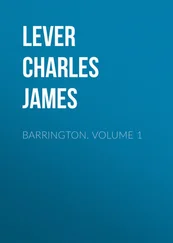Charles Lever - Roland Cashel, Volume II (of II)
Здесь есть возможность читать онлайн «Charles Lever - Roland Cashel, Volume II (of II)» — ознакомительный отрывок электронной книги совершенно бесплатно, а после прочтения отрывка купить полную версию. В некоторых случаях можно слушать аудио, скачать через торрент в формате fb2 и присутствует краткое содержание. Жанр: literature_19, foreign_antique, foreign_prose, на английском языке. Описание произведения, (предисловие) а так же отзывы посетителей доступны на портале библиотеки ЛибКат.
- Название:Roland Cashel, Volume II (of II)
- Автор:
- Жанр:
- Год:неизвестен
- ISBN:нет данных
- Рейтинг книги:5 / 5. Голосов: 1
-
Избранное:Добавить в избранное
- Отзывы:
-
Ваша оценка:
- 100
- 1
- 2
- 3
- 4
- 5
Roland Cashel, Volume II (of II): краткое содержание, описание и аннотация
Предлагаем к чтению аннотацию, описание, краткое содержание или предисловие (зависит от того, что написал сам автор книги «Roland Cashel, Volume II (of II)»). Если вы не нашли необходимую информацию о книге — напишите в комментариях, мы постараемся отыскать её.
Roland Cashel, Volume II (of II) — читать онлайн ознакомительный отрывок
Ниже представлен текст книги, разбитый по страницам. Система сохранения места последней прочитанной страницы, позволяет с удобством читать онлайн бесплатно книгу «Roland Cashel, Volume II (of II)», без необходимости каждый раз заново искать на чём Вы остановились. Поставьте закладку, и сможете в любой момент перейти на страницу, на которой закончили чтение.
Интервал:
Закладка:
“You ‘ll not be troubled with the next of kin, I believe,” said Lady Janet, in her most spiteful of voices.
“I say, my Lord Chief Justice,” said Frobisher, “let me have a travelling opinion from you, on a legal point. Wouldn’t Linton’s heirs, or representatives, or whatever they ‘re called, be bound to ‘book up’ if Ramekin is beaten in the handicap?”
“The law expressly declares such transactions without its pale, my Lord,” said the judge, rebukingly.
“Well, I can only say,” interrupted Upton, “that when we were in cantonments at Sickmabund, Jack Faris ‘of ours’ had a heavy stake in a game of piquet with the major, and just as he was going to count his point, he gave a tremendous yell, and jumped up from the table. It was a cobra capella had bitten him in the calf of the leg. Everything was done for him at once, but all in vain; he swelled up to the size of four, and died in about two hours. It was rather hard on old Cox, the major, who had two hundred pounds on it, and a capital hand; and so he made a representation to the mess, showing that he had seven cards to his point, with a quint in hearts; that, taking in the ace of clubs, he should count a quatorze, and, therefore, unquestionably win the game. The thing was clear as day, and so they awarded him the stakes. Cox behaved very handsomely, too; for he said, ‘If Faris’s widow likes to play the game out, I ‘ll give her the opportunity when we get back to England, and back myself, two to one.’”
“The Chevalier Bayard himself could not have done more,” said Miss Kennyfeck, with admirable gravity.
“I must say,” resumed the dragoon, “we thought it handsome, for old Cox was always hard up for money.”
“And what is to become of our theatricals, if Mr. Linton should have been so ill-natured as to drown himself?” said Mrs. White, in a most disconsolate tone; for she had already made terrible havoc in her wardrobe to accomplish a Turkish costume.
“Such a disappointment as it will be,” sighed Olivia Kennyfeck, who had speculated on a last effort upon Cashel in a Mexican dress, where, certes, superfluity should not be the fault.
“You can always make some compensation for the disappointment,” said Lady Kilgoff, “by a fancy ball.”
“Oh, delightful! the very thing!” exclaimed several together. “When shall it be, Mr. Cashel?”
“I am entirely at your orders,” said he, bowing courteously.
“Shall we say Tuesday, then?”
“Not Tuesday; we have the race on that morning,” said Frobisher; “and some of us, at least, will be too tired for a ball afterwards.”
“Well, Wednesday, – is Wednesday open?”
“Wednesday was fixed for a boat excursion to Holy Island,” said Cashel.
“You can’t have Thursday, then,” exclaimed Lady Janet; “that is the only evening we ever have our rubber. I’ll not give you Thursday.”
“Friday we are to have some people at dinner,” said Cashel; “and Saturday was to have been some piece of electioneering festivity for Linton’s constituents.”
“What matter now?” said Mrs. White; “perhaps the poor dear man is in a better place. A very sad thought,” sighed she; “but such things are happening every day.”
“Ah, yes, very sad,” responded Meek, who never failed to perform echo to any one’s lamentation.
“Ah, indeed!” chimed in Aunt Fanny, “cut off like a daisy.” And she wiped her eyes and looked solemn, for she believed she was quoting Scripture.
At last it was decided that the ball should come off on the earliest evening possible, irrespective of all other arrangements; and now the company formed in a great circle, discussing dresses and characters and costumes with an eager interest that showed how little Linton’s fate had thrown a shadow over the bright picture of anticipated pleasure.
CHAPTER VI. THE SEASON OF LINTON’S FLITTING
He could outrogue a lawyer.
Oldham.Revealing so freely as we do the hidden wiles of our characters for the reader’s pleasure, it would ill become us to affect any reserve or mystery regarding their actions. We shall not make, therefore, any secret of Mr. Linton’s absence, nor ask of our patient reader to partake of the mystification that prevailed among the company at Tubbermore.
It so chanced, that on the evening preceding his departure he saw in a newspaper paragraph the arrival of a very distinguished lawyer at Limerick on his way to Dublin, and the thought at once occurred to him, that the opportunity was most favorable for obtaining an opinion respecting the “Corrigan Pardon,” without incurring either suspicion or any lengthened absence.
Another object, inferior, but not devoid of interest, also suggested itself. It was this: profiting by a secret passage which led from the theatre to Cashel’s bedroom, it was Linton’s custom to visit this chamber every day, ransacking the letters and papers which, in his careless indolence, Roland left loose upon the tables, and thus possessing himself of the minutest knowledge of Cashel’s affairs. In his very last visit to this room, he perceived a cumbrous document, of which the seal of the envelope was broken, but apparently the contents unlooked at. It was enough that he read the indorsement, “Deed of conveyance of the Cottage and Lands of Tubber-beg.”
Feeling how far he himself was interested in the paper, and well knowing the forgetful habits of Cashel, who would never detect its removal, he coolly folded it up and carried it away.
At first, his intention was simply to peruse the paper at his ease, and, if need were, to show it in confidence to Cor-rigan, and thus establish for himself that degree of influence over the old man which the character of his landlord might convey. But another and a bolder expedient soon suggested itself to his mind – nor was he one to shrink from an enterprise merely on account of its hazard – and this was no less than to forge Cashel’s signature to the deed; for, as yet, it was wanting in that most essential particular.
That Roland would never remember anything of the matter, and that he would always incline to believe his own memory defective, than suppose such a falsification possible, Linton was well convinced. There was but one difficulty; how should he manage for the witnesses, whose names were to be appended as actually present at the moment of signing. Here was a stumbling-block – since he could scarcely hope to find others as short of memory as was Roland Cashel. It was while still canvassing the question in his mind that he came upon the intelligence in the newspaper of the lawyer’s arrival at Limerick, and suddenly it struck him that he could easily in that city find out two persons, who, for a sufficient consideration, would append their signatures to the deed. A little further reflection devised even an easier plan, which was to take along with him the Italian sailor Giovanni, and make him represent Cashel, whose appearance was quite unknown. By Giovanni’s personation of Roland, Linton escaped all the hazard of letting others into his confidence, while the sailor himself, in a few days more, would leave the country – never to return.
It was with the calm assurance of a man who could put a price upon any action required of him, that Giovanni found himself, an hour after midnight, summoned to Linton’s dressing-room.
“I told you some time back, Giovanni, that we might be serviceable to each other. The hour has come a little earlier than I looked for; and now the question is, are you of the same mind as you then were?”
“I know nothing of the laws of this country, signor, but if there be life on the issue – ”
“No, no, nothing like that, my worthy fellow. In the present case, all I ask for is your silence and your secrecy.”
Читать дальшеИнтервал:
Закладка:
Похожие книги на «Roland Cashel, Volume II (of II)»
Представляем Вашему вниманию похожие книги на «Roland Cashel, Volume II (of II)» списком для выбора. Мы отобрали схожую по названию и смыслу литературу в надежде предоставить читателям больше вариантов отыскать новые, интересные, ещё непрочитанные произведения.
Обсуждение, отзывы о книге «Roland Cashel, Volume II (of II)» и просто собственные мнения читателей. Оставьте ваши комментарии, напишите, что Вы думаете о произведении, его смысле или главных героях. Укажите что конкретно понравилось, а что нет, и почему Вы так считаете.












